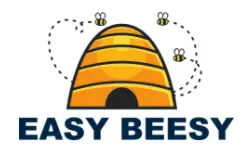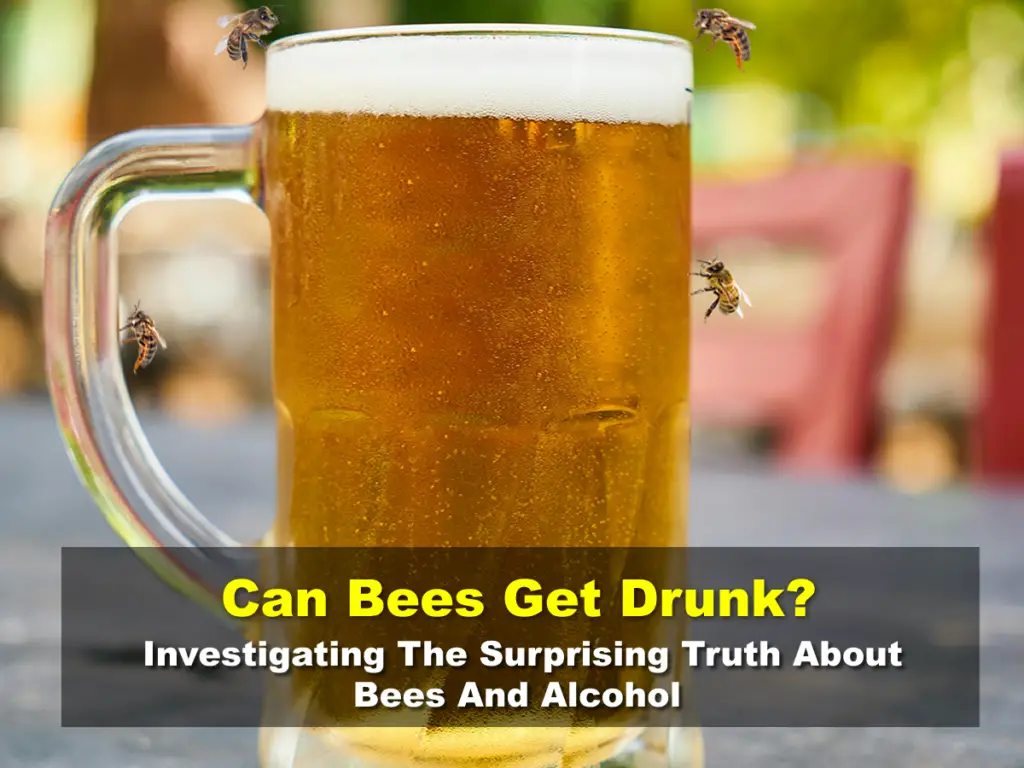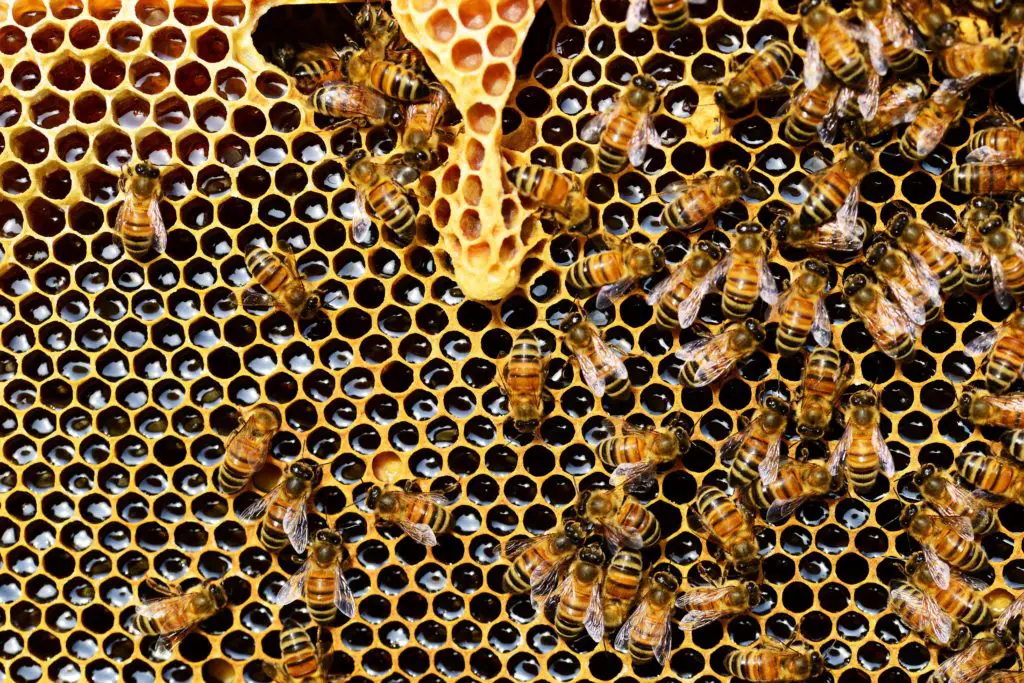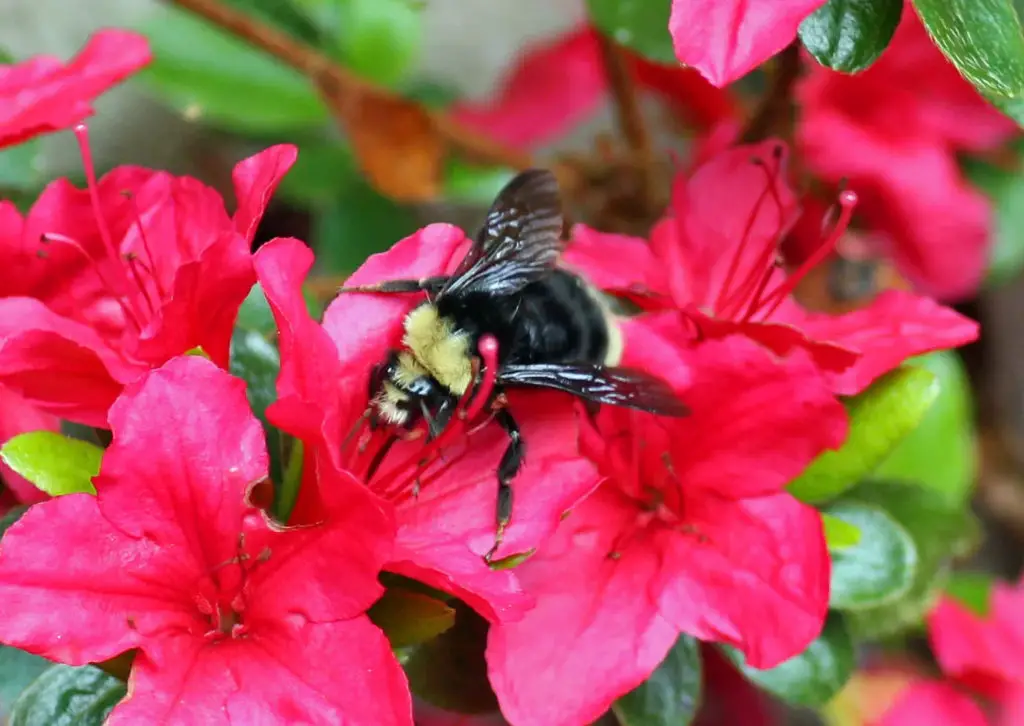Affiliate Disclaimer - As an Amazon Associate I earn from qualifying purchases.
It supports the website. So, Thank you
If you’re anything like me, you’ll love a little tipple. But that feeling you get when you’ve had one too many is never pleasant, is it? While being drunk is pretty common and easy to handle for humans, animals aren’t as lucky.
You might have accidentally left some wine out that your dog has gotten hold of and noticed how he’s acted a little out of sorts. But what about bees? If you leave an open bottle of beer on the garden table and they get into it; can bees get drunk?
Bees can, in fact, get drunk. Alcohol contains ethanol and it’s this chemical that interacts with the brain and causes drunkenness. That’s no different in bees.
However, bees more commonly become intoxicated after drinking fermented nectar which happens more often in nature than you might imagine.
Table of Contents
What Happens When A Bee Gets Drunk?
When bees consume alcohol, the effects aren’t all that dissimilar to what happens when we find ourselves a little inebriated.
They may lose the ability to fly in a straight line and it’s not uncommon for them to collide with buildings, trees, or other structures. If you ever see a bee flying erratically, then there’s a chance it may have had a little too much booze!
Many reports also state that a drunken bee may lose its ability to find its way back to the hive; in essence they just get disoriented and lost. However, in the event that they are able to make their way home, it’s not uncommon for the guard bees to send them packing or even attack and kill them.
This is because they can sense the fermented nectar and want to avoid contaminating the entire hive. It’s just like having a security guard outside of a nightclub who refuses entry to anyone who seems to have already had too much.
It’s thought that some species of bees may show an increase in aggression after consuming alcohol. This is more common in already aggressive species like the Africanized honey bee but it’s possible in other types of bees too.
In some cases, a drunk bee might lie on its back moving its legs around; probably pretty similar to situations you and I have found ourselves in after one too many glasses of wine!
Is Alcohol Harmful To Bees?
Nature provides a lot of opportunities for bees to consume alcohol and succumb to the effects of the ethanol it contains. This typically happens when yeast interacts with the naturally occurring sugar in nectar and causes it to ferment.
The process of fermentation is more likely in high temperatures so it’s quite common that a bee may happen upon a tipsy treat during its summer foraging activities. However, more often than not, they end up collecting this fermented nectar accidentally rather than actually seeking it out.
By the same token, it’s perfectly possible for a bee to become intoxicated after taking a few sips of an alcoholic drink left on a garden table. While a bee is unlikely to want to drink something like wine or liquor, those tasty fruit flavored ciders and alcopops could be enticing.
This leads many bee lovers to wonder whether alcohol is dangerous to bees.
Of course it is.
Just as alcohol can result in health problems in humans, it can have similar effects on bees. In fact, it’s not uncommon for bees to die of alcohol poisoning, whether that’s from fermented nectar or a human beverage.
Moreover, since drunk bees lose their coordination, this usually puts them at risk of dying from collisions or by running into a predator. If they’re lucky enough to make it back to the hive, they’ll likely be attacked and killed by the guard bees.
If you’re worried about bees when you’re having a garden party or BBQ then it’s best to ensure that all unsupervised drinks are covered with a lid.
Do Bees Enjoy Alcohol?
It would be very difficult to determine whether bees actually enjoy alcohol. Unlike humans, they don’t take weekend trips to the bar to pour copious amounts of shots down their necks.
However, scientific studies have shown that some species of bees, particularly honey bees, could be at risk of alcoholism. One study demonstrated that withdrawing alcohol from bees left them experiencing withdrawal symptoms!
What’s more, in the event that a single binge doesn’t kill an individual bee, there is research that shows bees may even develop a tolerance to alcohol. That’s exactly how it works in humans. I know some people that don’t drink very often and a single glass of fizz can render them useless whereas other people, who drink regularly, can down a couple of bottles of wine before they start feeling the effects.
This works in two ways. Bees that have already consumed alcohol develop tolerance on a metabolic level. Next time they drink it, their body absorbs it more slowly so the effects are not as prominent. Moreover, bees, just like humans, can develop greater nervous system tolerance which means that, despite the presence of alcohol, they’re still able to function normally and it would take a higher amount to affect their ability to perform certain tasks.
Do Bees Get Hangovers?
I personally think that there is nothing worse than a hangover. As I’ve gotten older, I’ve noticed that the after effects of alcohol last much longer and are much more unpleasant. Imagine those headaches, nausea, and weakness if you were a bee!
But surely bees can’t get hangovers, right?
Actually they can. In fact, it’s reported that bees may suffer the effects of alcohol for as long as 48 hours after consumption. That is, of course, assuming that they don’t die as a direct result of drinking it in the first place.
Studies On Bees And Alcohol
While I would never recommend purposefully trying to intoxicate a bee, controlled studies have taken place which aim to look at the effects of alcohol on humans through the use of bees.
This is beneficial as it allows scientists to observe how the misuse of alcohol can affect the human brain since bees and humans have a very similar molecular brain structure. In the study of alcoholism, this has proven to be very useful.
What’s more, further studies have taken place to look at how human behavior changes after consuming alcohol. Again, this is easy when using bees thanks to our similar brain structures.
Final Thoughts
I have been asked many times can bees get drunk and my answer often surprises people. Not only can bees become intoxicated but they also endure many of the same effects that we, as humans, do after consuming one too many of our favorite alcoholic drinks.
A drunk bee may struggle to fly, lose its coordination, and even get lost. However, since bees take work very seriously, a honey bee that does find its way home may find itself attacked or shunned by its hive mates.
If they manage to make it through their initial intoxication, there’s the risk of a hangover and even the possibility of becoming addicted!




